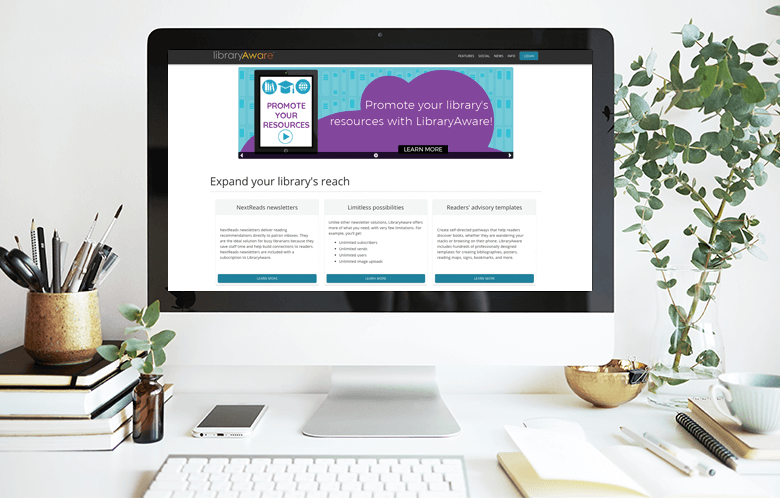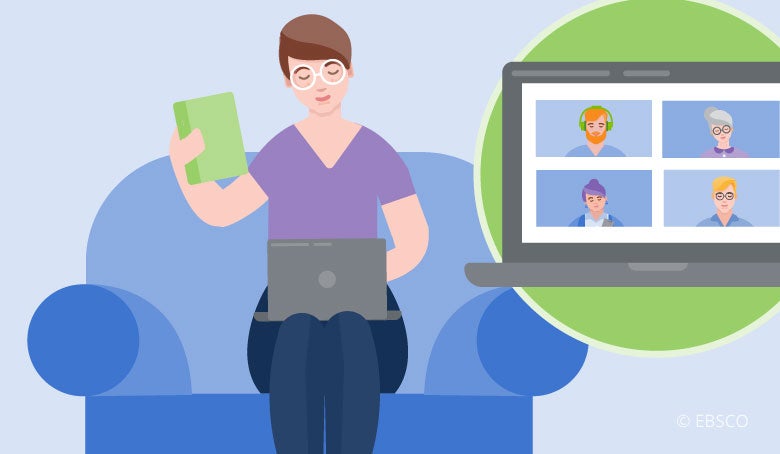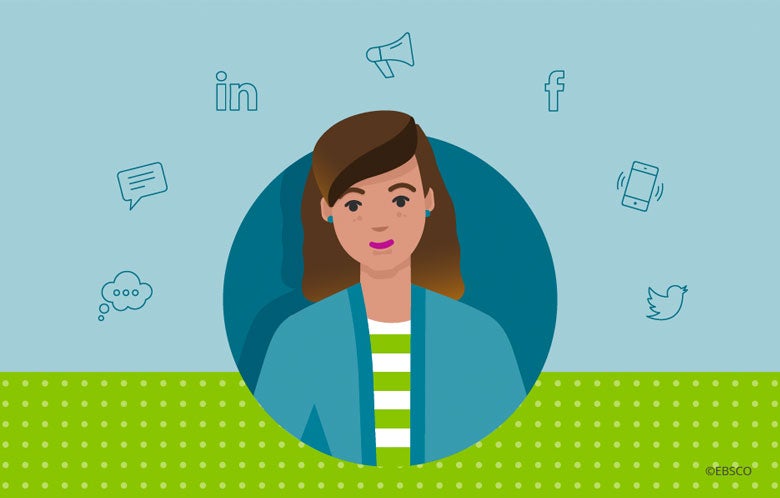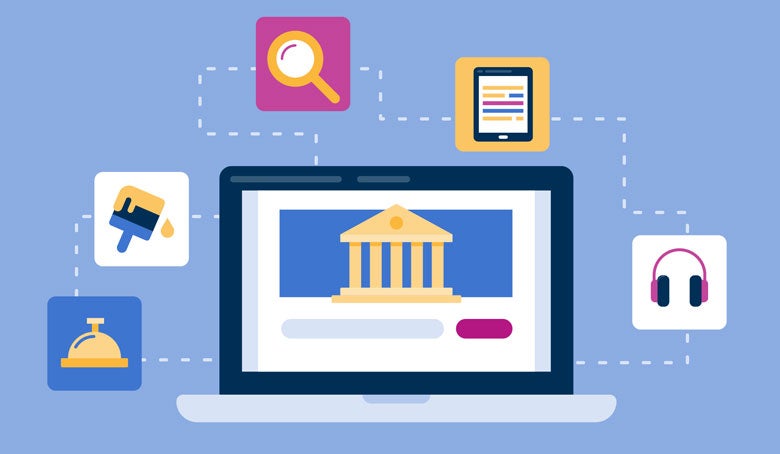I woke up early on Monday, February 3, 2020, full of nervous anticipation and excitement. It was my first day on the job at NoveList®. After seven years of working in marketing at a county-wide public library system, I was ready for an exciting new challenge, helping libraries of all shapes and sizes do what they do best — connect readers to the books they love. My position as Senior Engagement Consultant was already intended to be remote. I live in Ohio, my boss lives in Texas, and my co-workers are scattered from North Carolina to Florida to Minnesota. We had it all worked out. I would meet with my colleagues regularly by video and would occasionally travel to NoveList headquarters in Durham, North Carolina. I would also travel to customer libraries when necessary. It was an amazing opportunity, and I was excited to get started.
That plan lasted a grand total of 39 days.
But the change in my new job is small potatoes when you think about the changes libraries have navigated during the COVID-19 crisis. Library workers around the world have, quite literally, transformed their work in the last 10 months. They have adapted everything they do to support their community. They’ve found new ways to promote themselves. And they did it all while navigating the anxiety and stress that come with a crisis. If I ever hear another person say that libraries are outdated institutions incapable of adaptation, I have four major points of evidence prepared to set them straight.
Point #1: In the last 10 months, libraries have found innovative ways to deliver services to patrons when their physical buildings were closed. Before the pandemic, there were very few libraries using video or livestream social media platforms to deliver programming and information to people outside of the library walls. Now most every library is doing some form of virtual programming. Fresno County Library’s YouTube channel is packed with programming, from science experiments for kids to book talks for teens to salsa dancing and cooking demonstrations for adults. Manatee County Libraries created an entire section on their website called Enjoy From Home which includes online games, digital puzzles, and digital escape rooms. And when Prince George’s County Memorial Library System hosted an author event featuring Dr. Ibram X. Kendi, author of How to Be an Antiracist live on YouTube in June, the response was overwhelming. The live event reached more than 226,000 people around the world. More than 100,000 additional people watched the archived event video.
Point #2: During the COVID-19 crisis, libraries also embraced email as an effective way to promote their work. As my co-worker Jenny Schafer discovered when she crunched the numbers, LibraryAware customers sent 34 percent more emails to subscribers this year than last year. Leah White of Waukee Public Library turned to email to help her library communicate with her cardholders when the lockdown began. “I created the This Week with the Library newsletter when we had to shut down due to COVID,” said White. “We needed to get the word out on all of the great online programs we were doing and the new books and movies we were adding each week.”
When the time came to slowly re-open, libraries sent emails to their communities to explain how services would work under new safety guidelines. The New Bedford Free Public Library used a template in LibraryAware that helped them explain new policies to keep customers and staff safe. Now, as COVID cases increase again, libraries are using email to communicate the unfortunate news of new shutdowns. The Niles-Maine District Library recently sent an email to their cardholders explaining the need to close again, assuring patrons that they can continue to use remote services.
Point #3: Many libraries had to restrict physical browsing of the stacks because of concerns over exposure to the virus. So, they adapted again and brought the browsing experience their patrons crave online. Riverside Public Library now has an entire website landing page dedicated to browsing. Sections are set up as they would be in a physical branch, with "shelves” for adults, teens, and children. And the Citrus County Library System created virtual book displays on their website, where readers can browse titles hand-picked by library staff.
Point #4: Libraries discovered that reading recommendations are an effective way to keep their community actively engaged with the library and provide comfort, escape, and information during the crisis. The Weymouth Public Libraries adapted its BookMatch service. Their library staff selected books for readers based on the answers provided through a Google Form. Then, they delivered those selections to patrons' curbside. Many other libraries created their own form-based online readers’ advisory services after librarians from Weymouth, the Boston Public Library, and the Dallas Public Library talked about adapting their RA services in the pandemic during a NoveList webinar earlier this year.
In my short tenure at NoveList, I’ve learned a great deal from libraries. They’ve reminded me that every problem has a solution and it’s my job to find it, because people depend on their libraries. The crisis is not over yet. And we have a lot of things to feel anxious about. Whatever happens, I have absolutely no doubt that library staff will rise to meet the challenge. And we are all better off because of their tenacity and dedication.



